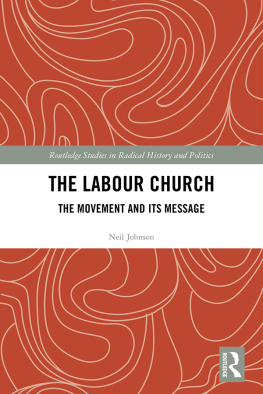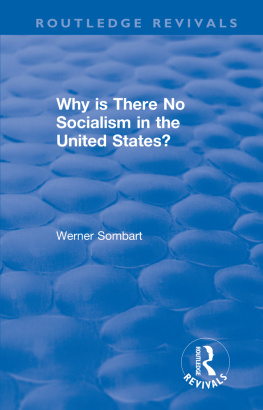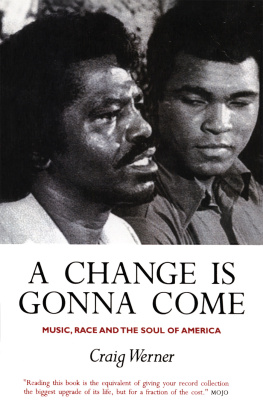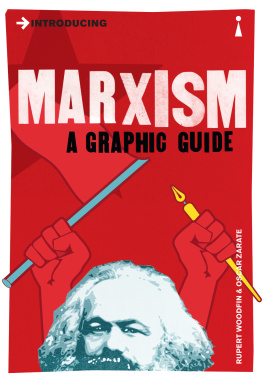Werner Sombart - Socialism and the Social Movement in the 19th Century
Here you can read online Werner Sombart - Socialism and the Social Movement in the 19th Century full text of the book (entire story) in english for free. Download pdf and epub, get meaning, cover and reviews about this ebook. year: 2019, publisher: Good Press, genre: Politics. Description of the work, (preface) as well as reviews are available. Best literature library LitArk.com created for fans of good reading and offers a wide selection of genres:
Romance novel
Science fiction
Adventure
Detective
Science
History
Home and family
Prose
Art
Politics
Computer
Non-fiction
Religion
Business
Children
Humor
Choose a favorite category and find really read worthwhile books. Enjoy immersion in the world of imagination, feel the emotions of the characters or learn something new for yourself, make an fascinating discovery.
- Book:Socialism and the Social Movement in the 19th Century
- Author:
- Publisher:Good Press
- Genre:
- Year:2019
- Rating:4 / 5
- Favourites:Add to favourites
- Your mark:
- 80
- 1
- 2
- 3
- 4
- 5
Socialism and the Social Movement in the 19th Century: summary, description and annotation
We offer to read an annotation, description, summary or preface (depends on what the author of the book "Socialism and the Social Movement in the 19th Century" wrote himself). If you haven't found the necessary information about the book — write in the comments, we will try to find it.
Socialism and the Social Movement in the 19th Century — read online for free the complete book (whole text) full work
Below is the text of the book, divided by pages. System saving the place of the last page read, allows you to conveniently read the book "Socialism and the Social Movement in the 19th Century" online for free, without having to search again every time where you left off. Put a bookmark, and you can go to the page where you finished reading at any time.
Font size:
Interval:
Bookmark:
Movement in the
19th Century
ANSON P. ATTERBURY
Pastor of the Park Presbyterian Church New York
JOHN B. CLARK
Professor of Political Economy
Columbia University
NEW YORK LONDON
27 WEST TWENTY-THIRD STREET 24 BEDFORD STREET, STRAND
The Knickerbocker Press
1898
by
G.P. PUTNAM'S SONS
OF THE COMMUNISTIC SOCIETY TO WHICH WE BELONG
THIS TRANSLATION IS INSCRIBED
Columbia University, New York.
| PAGE |
| v |
| viii |
| ix |
CHAPTER |
| 1 |
Class struggleKantThe meaning of the social movementEssential elements in every social movementCharacterisation of the social movementConditions under which the working class livesRussian peasantsIrish "rack-rent" tenantsUncertainty of existenceThe JapaneseThe KurdHegelThe ground of revolutionary passions in the modern proletariatTime environment of the modern social movement"Revolutionism." |
| 19 |
Social literature, old and newAdam SmithDavid Ricardo"Christian socialism"LamennaisKingsley"Ethical socialism"SismondiCarlyle"Philanthropic socialism"Pierre LerouxGrnHessAnti-capitalistic literatureAdam MllerLeopold von HallerCapitalistic methods of productionUtopian socialistsSt. SimonFourierOwen. |
| 37 |
Beginnings of the social movement carried on by the massesHistoric occurrencesMiddle-class movementsFrench RevolutionLoi martiale"Coalition Law"MaratThe men of MontaigneThe Sans-culottesDantonRobespierreConstitution of 1793Droits de l'HommeInsurrection of BabeufThe first proletarian agitationElizabethan trade lawThe Chartist movementEnglish type of working-men's movementFrench typeGerman typeVariations of the social movementEnglish social developmentCarlyle's teaching. |
Font size:
Interval:
Bookmark:
Similar books «Socialism and the Social Movement in the 19th Century»
Look at similar books to Socialism and the Social Movement in the 19th Century. We have selected literature similar in name and meaning in the hope of providing readers with more options to find new, interesting, not yet read works.
Discussion, reviews of the book Socialism and the Social Movement in the 19th Century and just readers' own opinions. Leave your comments, write what you think about the work, its meaning or the main characters. Specify what exactly you liked and what you didn't like, and why you think so.












